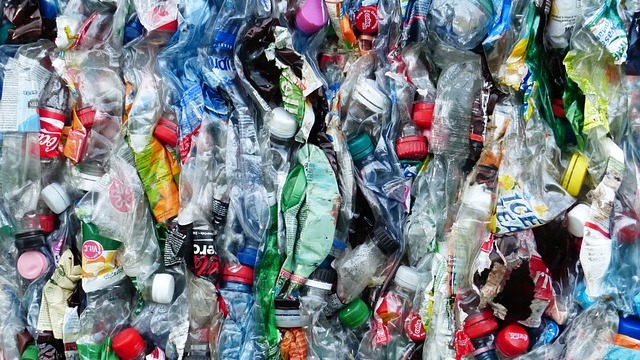
Friends Take Steps to Address the Climate Crisis
We know that many Friends throughout the yearly meeting and around the world are following their leadings to work on climate change, environmental justice, and habitat and biodiversity protection. The Eco-Justice Collaborative’s monthly newsletter often includes stories of action, and this month we hear from Ray Elberson, an attender at Medford Monthly Meeting, about the work of the Plastics Committee of the South Jersey GreenFaith Circle to which he and his wife, Carla, belong. Visit the Eco-Justice Collaborative’s website here, and subscribe here to the EJC newsletter by choosing “Peace & Social Justice.”
Back in 2018, several of us got together and formed the South Jersey GreenFaith Circle. GreenFaith is an international interfaith organization that had its beginnings at the Rio Earth Summit in 1992. Its mission statement is: “Because the Earth and all people are sacred and at risk, GreenFaith is building a worldwide, multi-faith climate and environmental movement. Together our members create communities to transform ourselves, our spiritual institutions, and society to protect the planet and create a compassionate, loving and just world.”
Right now our South Jersey circle is composed of about a dozen faith communities. From its inception we have met monthly. The circle is divided into a variety of committees that represent the members’ interests. My wife, Carla, and I joined the Plastics Committee. We didn’t know much about plastics other than they are made from fossil fuels, chiefly oil and natural gas, and we knew the extraction of fossil fuels was bad for the earth, bad for the climate, and bad for people. We are a committee of five ordinary people with no special or professional knowledge about plastics, but with a goal to help ourselves and others to care for the earth. So, our first job was to educate ourselves about plastic. Fortunately, there’s a wealth of reliable information online regarding the topic. I seem to remember that the “Beyond Plastics“ website was where we began. We divided our research into a variety of topics: the history of plastics, the green washing that often goes with plastic based products, the dangers of micro plastics and microfibers, medical research that is finding human neurotoxicity related to plastics, plastics recycling, and so on.
First we developed a presentation format for sharing what we’ve learned. Each of us would take a few minutes to share what we learned about plastics and their effect on us and on our world. Then we added a show and tell segment to follow the presentations. We chose a “rooms in the house” format so that we could relate directly to almost any audience. We gathered products that were alternatives to the commonly used and overused kitchen, bathroom, and laundry room items. Alternative items would be explained as to why they were better for the earth, where they could be purchased, and how they could be used. Following this segment, members of the audience were invited to tables that held the products where they could have hands on and ask further questions. So, once we got this far, we did some practicing, and then we took our Plastics presentation on the road. I believe we’ve made 7 or 8 presentations, mostly to faith communities. Being your own judge is tricky, but all in all I think we’ve been well received. Finally, we can’t go everywhere, so we set a goal to make a YouTube video of our presentation. We found a professional videographer who made a video of us five rank amateurs, which we plan to post on the GreenFaith Circle’s YouTube channel, where many more people can see it.
We may be amateurs, but we’ve grown in our knowledge and awareness of the very real threats that plastics pose to the earth and to all the creatures that live upon it. We continue to learn and share with one another new learning resources. We continue to have passion for sharing what we’ve learned, and we continue to do in-person presentations. We’ve named our presentation “Plastics, what’s the big deal?” because our continuing use of plastics is a big deal.
–Ray Elberson
Will 2024 be the year that your story inspires others and supports them in their work? If you have a story to share, please contact Ruth Darlington, Eco-Justice Collaborative Co-clerk, at rdarlington49@gmail.com.